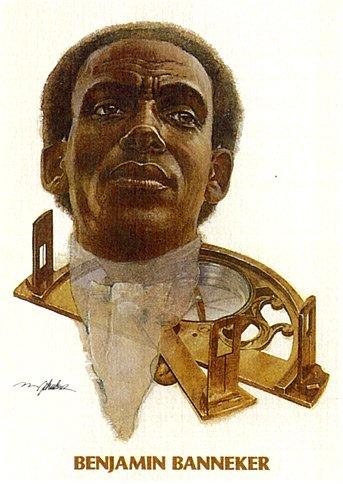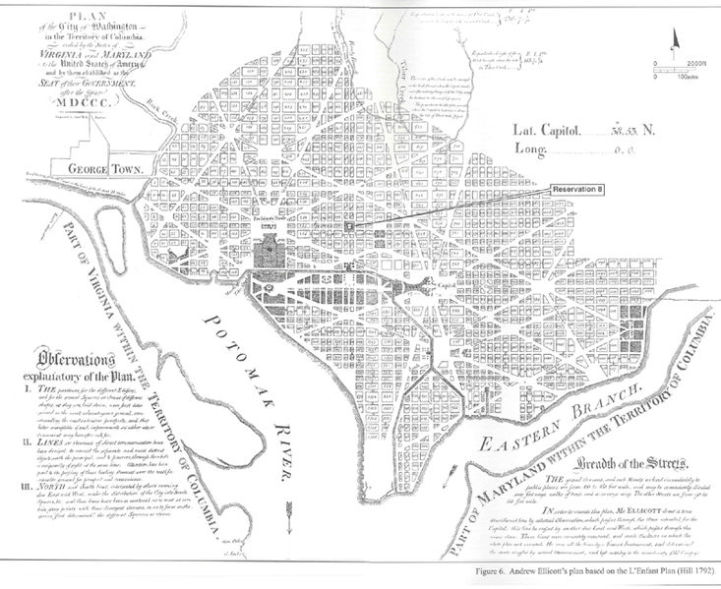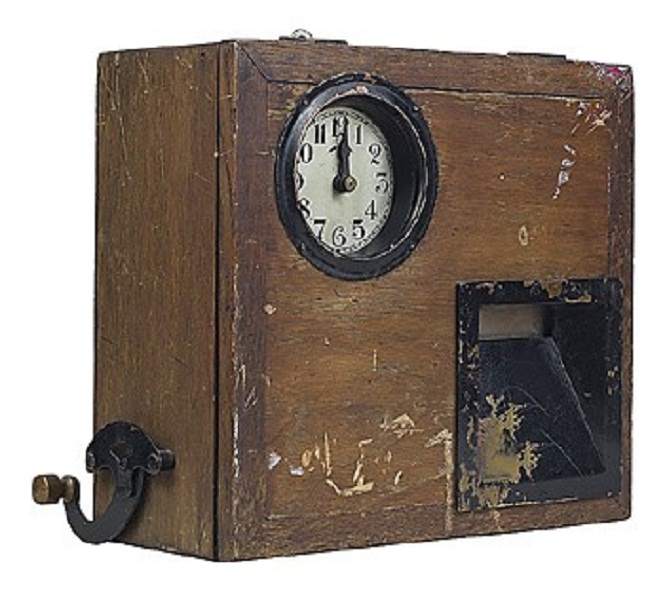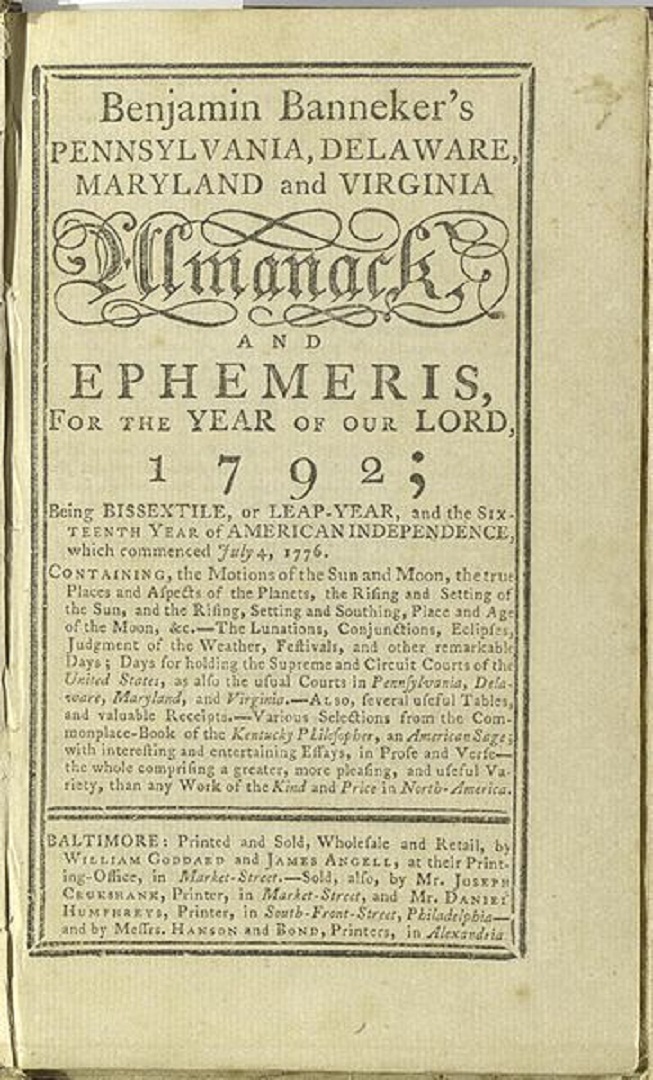It looks like you're using an Ad Blocker.
Please white-list or disable AboveTopSecret.com in your ad-blocking tool.
Thank you.
Some features of ATS will be disabled while you continue to use an ad-blocker.
7
share:

He was neither a statesman nor warrior but he lived in a time of giants, among his contemporaries were Thomas Jefferson, George Washington and the top brain of the day Benjamin Franklin, his accomplishments and life was remarkable enough ,but it was even more so given the family he was born into.
Background and Early Years
Born on November 9, 1731, in Ellicott's Mills, Maryland, Benjamin Banneker was the son of an ex-slave named Robert and his wife, Mary Banneky. Mary was the daughter of an Englishwoman named Molly Welsh, a former indentured servant, and her husband, Bannka, an ex-slave whom she freed and who asserted that he came from tribal royalty in West Africa.
Because both of his parents were free, Benjamin escaped the wrath of slavery as well. He was taught to read by his maternal grandmother and for a very short time attended a small Quaker school. Banneker was primarily self-educated, a fact that did little to diminish his brilliance. His early accomplishments included constructing an irrigation system for the family farm and a wooden clock that was reputed to keep accurate time and ran for more than 50 years until his death. In addition, Banneker taught himself astronomy and accurately forecasted lunar and solar eclipses. After his father's passing, he ran his own farm for years, cultivating a business selling tobacco via crops.
So coming from low born parents of slaves Black and White ,who despite their disadvantage non the less pulled together to what would amount to being lower middle class of their day and raised four children one being very remarkable , how ever his on his African side he may have been the grandson of a King, his father Benneka apparently made this claim.
Banneka” is what he called himself. He was the eldest son of a king, “Captured in an enemy raid and sold to slave traders. (Some scholars believe that his given name was Banne and that Ka was a family name.
www.duboislc.net...
Benneker and the star Sirius
It is worth noting his interest in astronomy was the ethnic group his father belonged , many would recognized them as the Dogon yes those very famous stargazers from Mali or North Eastern Guinea.
Benjamin Banneker reportedly said Sirius was both his favorite star and his lucky star, called it a double star many years before professional scientists of the advanced world confirmed that fact.
This knowledge he could have gotten from his father,which helped propelled his interest.
What an amazing and fascinating life story! Did a quick Amazon search and found a couple biographies-
www.amazon.com...
www.amazon.com...=pd_aw_sim_14_2?ie=UTF8&dpID=51GbNiZfYeL&dpSrc=sims&preST=_AC_UL100_SR100%2C100_&refRID=1T2G49ARBBS04DTP0T CB
It would make one heck of a movie. Thanks for the post friend, really good share!
www.amazon.com...
www.amazon.com...=pd_aw_sim_14_2?ie=UTF8&dpID=51GbNiZfYeL&dpSrc=sims&preST=_AC_UL100_SR100%2C100_&refRID=1T2G49ARBBS04DTP0T CB
It would make one heck of a movie. Thanks for the post friend, really good share!
The Capitol city of Washington

Apparently Banneker helped surveyed the site on which the Capitol was to be built.


Correspondences with Jefferson :

Apparently Banneker helped surveyed the site on which the Capitol was to be built.
While there is no doubt L’Enfant designed the capital, it could never have been built without an Benjamin Banneker, whose brilliant mind saved Washington, D.C. When the President fired the architect and the plans left town tucked under his arm, L’Enfant left something behind, not on paper but in the mind of a certain surveyor.
Benjamin Banneker, from Brookhaven National Laboratory at bnl.gov.
Benjamin Banneker and Major Andrew Ellicott must both be credited with saving the capital. Banneker, an African-American mathematician and astronomer, had been engaged by Ellicott to help survey the federal territory during the time Ellicott was working closely with L’Enfant. Banneker was able to reproduce the complete layout – streets, parks, major buildings. But others say the story about reconstructing from memory may not be entirely Banneker’s achievement, citing Andrew and Benjamin Ellicott who told Secretary of State Jefferson and President Washington they could reproduce the plan in enough detail to make something suitable for engraving. Whichever side of the controversy you’re on, there is much to be said for sharing designs with a core team.
blogs.umb.edu...

Sometime in the early 1750s, Benjamin borrowed a pocket watch from a wealthy acquaintance, took the watch apart and studied its components. After returning the watch, he created a fully functioning clock entirely out of carved wooden pieces. The clock was amazingly precise, and would keep on ticking for decades. As the result of the attention his self-made clock received, Banneker was able to start up his own watch and clock repair business.
www.black-inventor.com...

Popular Almanacs
Banneker's true acclaim, however, came from his almanacs, which he published for six consecutive years during the later years of his life, between 1792 and 1797. These handbooks included his own astronomical calculations as well as opinion pieces, literature and medical and tidal information, with the latter particularly useful to fishermen. Outside of his almanacs, Banneker also published information on bees and calculated the cycle of the 17-year locust.
Correspondences with Jefferson :
Letter to Jefferson
Benjamin Banneker's accomplishments extended into other realms as well, including civil rights. In 1791, Thomas Jefferson was secretary of state and Banneker considered the respected Virginian, though a slaveholder, to also be open to viewing African Americans as more than slaves. Thus, he wrote Jefferson a letter hoping that he would “readily embrace every opportunity to eradicate that train of absurd and false ideas and opinions which so generally prevail with respect to us." To further support his point, Banneker included a handwritten manuscript of an almanac for 1792, containing his astronomical calculations.
In his letter, Banneker acknowledged he was “of the African race” and a free man. He recognized that he was taking “a liberty” writing to Jefferson, which would be unacceptable considering “the almost general prejudice and prepossession which is so prevalent in the world against those of my complexion.” Banneker then respectfully chided Jefferson and other patriots for their hypocrisy, enslaving people like him while fighting the British for their own independence.
letter from Jefferson to Banneker dated August 30, 1791 from the Library of Congress:
I thank you sincerely for your letter of the 19th. instant and for the Almanac it contained. no body wishes more than I do to see such proofs as you exhibit, that nature has given to our black brethren, talents equal to those of the other colours of men, & that the appearance of a want of them is owing merely to the degraded condition of their existence both in Africa & America. I can add with truth that no body wishes more ardently to see a good system commenced for raising the condition both of their body & mind to what it ought to be, as fast as the imbecillity of their present existence, and other circumstance which cannot be neglected, will admit. I have taken the liberty of sending your almanac to Monsieur de Condorcet, Secretary of the Academy of sciences at Paris, and member of the Philanthropic society because I considered it as a document to which your whole colour had a right for their justification against the doubts which have been entertained of them. I am with great esteem, Sir, Your most obedt. humble servt. Th. Jefferson
www.biography.com...-to-jefferson
originally posted by: cosmickat
a reply to: Spider879
what an interesting account.
I have heard a little about the Dogon Tribe and the dog star Sirius ...fascinating to wonder how they could have had so much advanced astronomical knowledge at their place in time.
Hi Cosmickat I think we have an almost natural temporal bias, I think our collective ancestors know a lot more then we credit them with, also the Dogon fell within the Mali empire that was more then the size of all western Europe combined, they had Universities that drew students and teachers from all over their known world books was worth their weight in gold were kept in large libraries copied and resold, professor were the equivalent of millionaire basket ball stars today, in that heightened sense of intellectual curiosity the Dogon could very well had been exposed to it, or they could very well have made their own discovery.
a reply to: Spider879
hi Spider. loving this info.
makes me wonder what kind of a world we would be living in now had we held onto that reverence for truth and wisdom and if we still held our scholars and poets in high regard...instead of this celebrity culture everyone seems preoccupied with these days.
The idea of a collective intellect is one we should strive after as it may be our way to redemption of the human race.
hi Spider. loving this info.
makes me wonder what kind of a world we would be living in now had we held onto that reverence for truth and wisdom and if we still held our scholars and poets in high regard...instead of this celebrity culture everyone seems preoccupied with these days.
The idea of a collective intellect is one we should strive after as it may be our way to redemption of the human race.
edit on 5/2/16 by
cosmickat because: (no reason given)
edit on 5/2/16 by cosmickat because: grammar
a reply to: Spider879
Hey sorry < I stumbled onto looking at plans for DC and had found that Benneker was actually the man responsible for completing the project after Charles Lefant abandoned it !
Although none of this is mentioned on any formal record, nothing on wikipedia either
Hey sorry < I stumbled onto looking at plans for DC and had found that Benneker was actually the man responsible for completing the project after Charles Lefant abandoned it !
Although none of this is mentioned on any formal record, nothing on wikipedia either
a reply to: Spider879
I just found it odd that its not actually mentioned on wikipedia or that! but its cool that he managed to remember most of it or at least had the ideas still in his mind from the plans and carried it all out.
Would be cool to find out if he was actually royalty
I just found it odd that its not actually mentioned on wikipedia or that! but its cool that he managed to remember most of it or at least had the ideas still in his mind from the plans and carried it all out.
Would be cool to find out if he was actually royalty
new topics
-
A Merry Christmas.
Other Current Events: 1 hours ago -
Cold Blooded Killers on Christmas!! GRRRRrrr!!
Pets: 9 hours ago
top topics
-
Orange County Makes Shoplifting a Felony
Other Current Events: 17 hours ago, 17 flags -
Cold Blooded Killers on Christmas!! GRRRRrrr!!
Pets: 9 hours ago, 9 flags -
Plane Crash Today --Azerbaijanian E190 passenger jet
Mainstream News: 13 hours ago, 6 flags -
A Merry Christmas.
Other Current Events: 1 hours ago, 1 flags
active topics
-
It's Offical Now
US Political Madness • 17 • : Freeborn -
‘Something horrible’: Somerset pit reveals bronze age cannibalism
Ancient & Lost Civilizations • 23 • : BrucellaOrchitis -
A Merry Christmas.
Other Current Events • 3 • : Cloudbuster1 -
Plane Crash Today --Azerbaijanian E190 passenger jet
Mainstream News • 17 • : Naftalin -
London Christmas Market BANS Word ‘Christmas’
Social Issues and Civil Unrest • 51 • : Naftalin -
-@TH3WH17ERABB17- -Q- ---TIME TO SHOW THE WORLD--- -Part- --44--
Dissecting Disinformation • 3814 • : brewtiger123 -
Cold Blooded Killers on Christmas!! GRRRRrrr!!
Pets • 10 • : Flyingclaydisk -
The clotting is not going away latest
Medical Issues & Conspiracies • 15 • : NoCorruptionAllowed -
Statements of Intent from Incoming Trump Administration Members - 2025 to 2029.
2024 Elections • 54 • : WeMustCare -
DefCon Teetering on Escalation
World War Three • 51 • : WeMustCare
7
